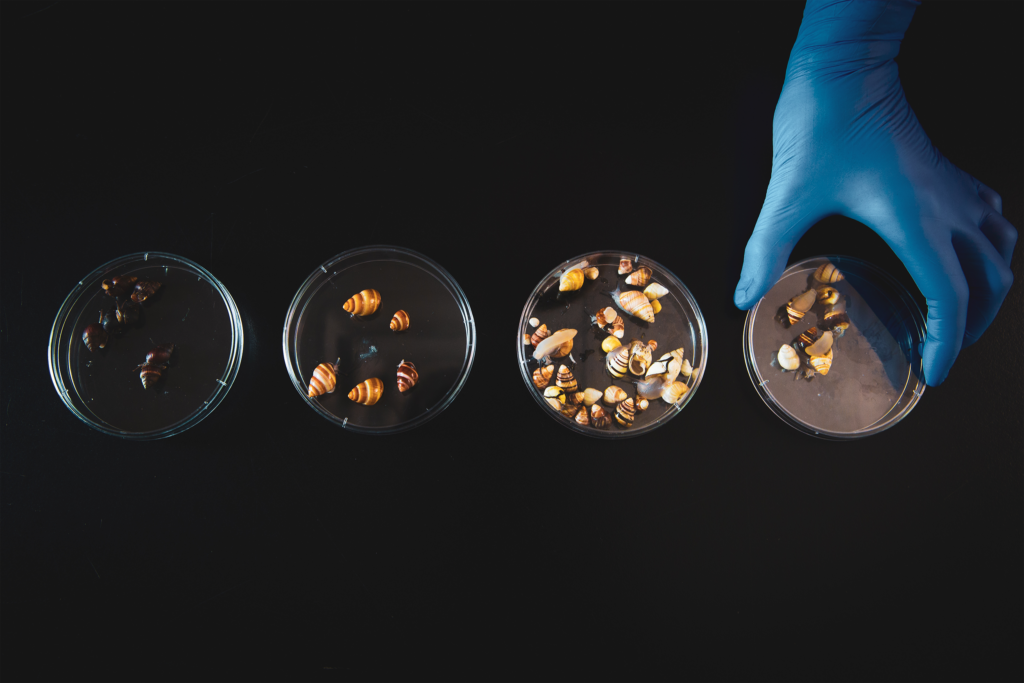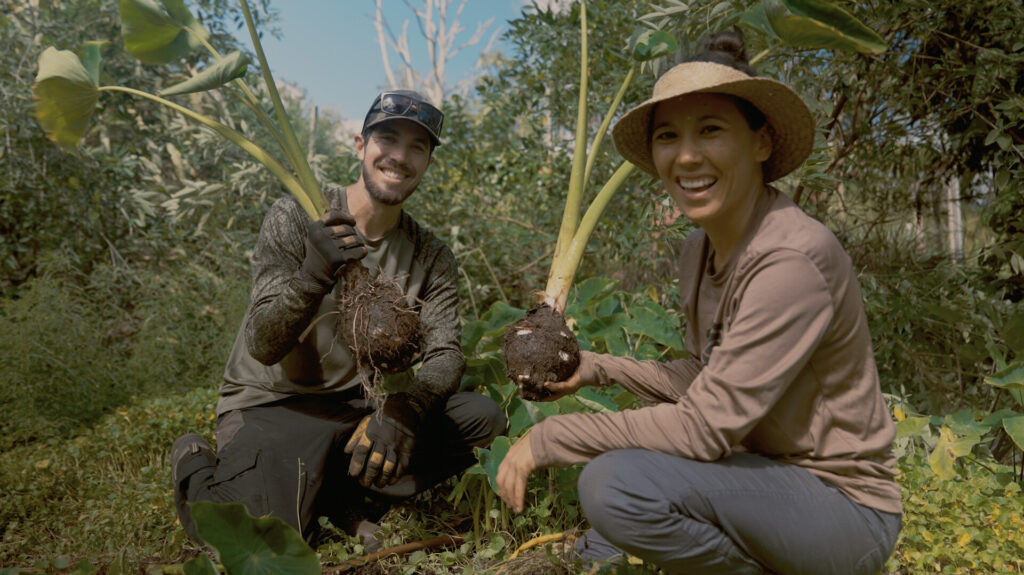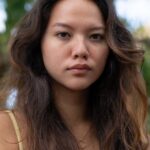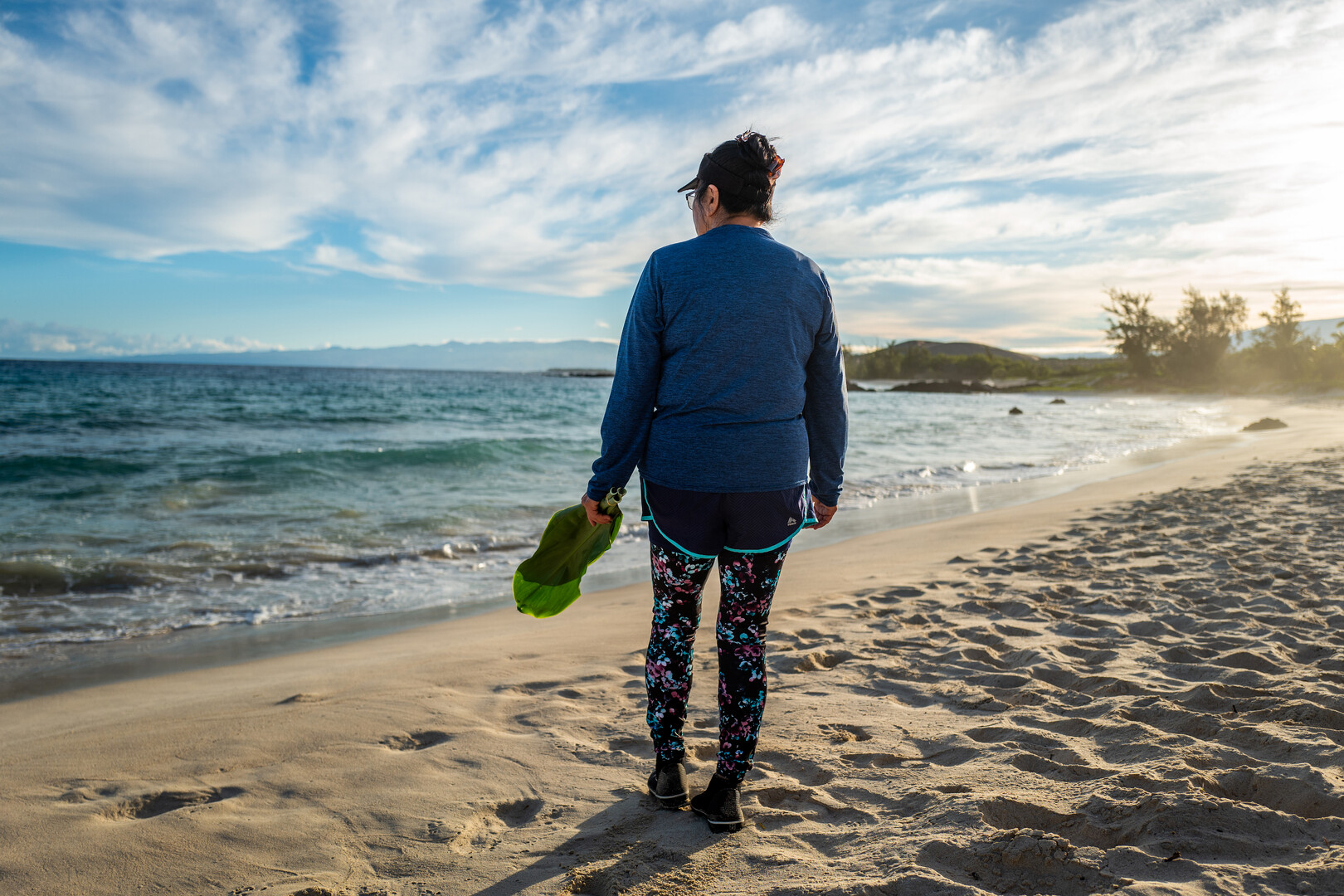KĀHULI, SEEING WITH HAWAIIAN EYES, and KEEPER OF THE BAY, all official selections of the 43rd Hawai‘i International Film Festival, are three documentaries bringing awareness to topics such as climate change, rapid extinction and decline of native plants and animals, sustainable Hawaiian practices, and some of the people who are working to preserve this ʻāina.
KĀHULI is a short documentary centered around various conservation workers in Hawaiʻi who work with Kāhuli, the endemic Hawaiian tree snails. This film brings a critical awareness to audiences regarding the rapid mass extinction of Kāhuli due to societal changes with land management and the introduction of many invasive species. In Hawaiian culture, Kāhuli are known as “the voice of the forest.” This is because in our oral and recorded moʻolelo (histories), Kāhuli have the ability to sing.

Being a short film, the documentary doesnʻt fully encompass all the issues around the rapid mass extinction of Kāhuli. The film also doesn’t address the fact that Hawaiʻi is the extinction capital of the world. Besides Kāhuli, far too much of Hawaiʻiʻs native and endemic species (plant and animal) are extinct or on the brink of extinction. The native conservation workers featured in this film are part of small teams in small state or privately funded organizations that are doing their best to conserve what is left of the native and endemic species. The grim reality is that there arenʻt enough people in conservation programs or enough money funding conservation programs to ensure these species survive and thrive. This also points to a bigger issue within the system, although there is a strict law regarding the agricultural declaration of what is brought into Hawaiʻi, it isnʻt enough. There are not enough on-the-ground enforcement or laws for invasive species control or for native plant/animal revitalization. However, it is incredibly admirable to see that there are people doing everything they can to keep Kāhuli alive. KĀHULI is currently streaming on PBS Digital until August 6, 2024.
SEEING WITH HAWAIIAN EYES is a short documentary about Lehia Apana (Kānaka Maoli) and her partner, Brad Bayless (Uchinanchu/Okinawan mix), of Polipoli farms and their efforts to cultivate traditional agriculture of native and canoe plants. Their farm is located in the ahupuaʻa of Waiehu on Maui. Waiehu is a stream part of the famous Nā Wai ʻEhā, “The Four Waters”. This area is well known in Hawaiian moʻolelo (history) for being lush and green due to the great water sources. However, an effect of the illegal overthrow of the Hawaiian Kingdom led to the mismanagement and theft of water sources for capitalist efforts such as plantations and tourism.
The people of Maui have been fighting for their rights to their water for far too long. Lehia talks fondly of her parents and their involvement with protecting Kahoʻolawe from the US military bombings there. Bombings which ultimately led to the island being uninhabitable for human life. The effects of the US Military on Kahoʻolawe is an evil one, over 9 million UXOs were never cleared out making the island incredibly dangerous, cracking its only freshwater aquifer, as well as wiping out nearly all the native an endemic species that were once there.
In fact, one of the endemic plants to Kahoʻolawe named Kanaloa Kahoolawensis is extinct in the wild. So, it is safe to say that Lehia and Brad understand their kuleana in being land stewards. They see the way that land and people can thrive through their care of ʻāina.

KEEPER OF THE BAY is a feature documentary following Kanaka Maoli Cindy Punihaole who is a caretaker of Kahaluʻu bay. Similarly to KĀHULI and SEEING WITH HAWAIIAN EYES, the film addresses the rapid life decline of natural resources, specifically in the ocean ecosystem that surrounds us. In the Hawaiian language, “wai” means “freshwater” while “waiwai” means “wealth”. It is a profound Hawaiian understanding, that is a shared sentiment with other Indigenous cultures, that you are incredibly wealthy if you have an abundance of natural resources.
The disappearance, fragility, and rarity of these natural resources have manifested due to factors such as colonization, capitalism, and industrialism. As part of this, climate change and exploitation of land have negatively impacted Hawaiʻiʻs fragile and small ecosystem. The film briefly addressed how Native Hawaiians had maintained land systems (ahupuaʻa) and had political structures in place to make sure natural resources werenʻt depleted. In ahupuaʻa, everyone had a place to live in and had free access to natural resources to sustain themselves.
During the COVID-19 pandemic shutdown, Hawaiʻiʻs lands and beaches healed a bit. Coconuts were growing on coconut trees in Waikīkī and scientists saw the return of sea life reefs in places like Kahaluʻu. Many community members with pilina (valuable connection) to these areas have started education programs in hopes they can educate those who otherwise donʻt know anything. It is through this education about ʻāina that we know why it is important to care for it.
This film closes out with various people in Cindyʻs life talking about how sheʻs not the only keeper of the bay, everyone on this island has a kuleana (responsibility) to care for the bay. Why? The bay is the keeper of Cindy as well, the island is the keeper of us. Having pilina to this ʻāina is knowing your kuleana in caring for it. It is also knowing that itʻs not a one-way road, this is a reciprocal relationship.
Find out more about KEEPER OF THE BAY by visiting the film’s official website.
There is an ʻŌlelo Noʻeau (Hawaiian Proverb) saying that goes, “He aliʻi ka ʻāina, he kauwa ke kanaka.” This loosely translates to “The land is chief, the man is its servant.” This is the profound understanding that we have a duty as human beings to care for the land that provides for us. This mindset and lifeway has been lost amongst many people in the wake of capitalistic greed exploiting so many natural resources. Instead of thinking of instant gratification and what we want now, we must instead shift our mindset to ensuring that the natural resources are bountiful and in excess for the future generations. The “now” matters because the future will experience the consequences of the choices we make today.
A common theme between these three films are that of the horrific land mismanagement, land exploitation, and climate change making areas unlivable for the native plant and animal species that rightfully belong there. This sentiment also goes to those who are the extensions of Hawaiʻi, Kānaka Maoli, whoʻve recently reached a statistic where more Native Hawaiians are living outside of Hawaiʻi than in Hawaiʻi. Since the illegal occupation of the independent Hawaiian nation, native lands have been forcibly taken away by foreign powers. These foreign powers value money over the native land and people. This is why I believe the term “climate gentrification” can have a more specific locational meaning in the context of Hawaiʻi.
We are seeing in real time the way our native plants, animals, and people are disappearing from Hawaiʻi due to deplorable systemic removal of them. It is a horrible thing to witness the real-time destruction of your ancestral land firsthand while most of us are not able to live on it. Every native plant, animal, and person deserve to live on their homeland.
 Pualalea Panaewa is a Kanaka ʻŌiwi (Native Hawaiian) filmmaker, actor, and organizer. Being born and raised in Waiʻanae, Oʻahu, heavily immersed in Hawaiian history and culture. She is passionate about preserving nā moʻolelo o Hawaiʻi (Hawaiian histories & stories) through film for Native Hawaiian audiences and beyond. They are dedicated to combating the misrepresentation of Hawaiʻi in the media. Pualalea currently attends the University of Hawaiʻi at Mānoa, where they study Digital Cinema in The School of Cinematic Arts with a focus on Indigenous filmmaking.
Pualalea Panaewa is a Kanaka ʻŌiwi (Native Hawaiian) filmmaker, actor, and organizer. Being born and raised in Waiʻanae, Oʻahu, heavily immersed in Hawaiian history and culture. She is passionate about preserving nā moʻolelo o Hawaiʻi (Hawaiian histories & stories) through film for Native Hawaiian audiences and beyond. They are dedicated to combating the misrepresentation of Hawaiʻi in the media. Pualalea currently attends the University of Hawaiʻi at Mānoa, where they study Digital Cinema in The School of Cinematic Arts with a focus on Indigenous filmmaking.
The HIFF ONLINE CREATIVES & CRITICS IMMERSIVE (HOCCI) program supports sustainable film criticism in Hawai‘i through mentorship and paid career opportunities. The mission of HOCCI is to broaden diversity in film criticism across the Pacific region and use influencer branding strategies to spark career opportunities in Hawai’i, not be hampered by oceans, state borders and distance, because geography is no longer a barrier. The 2023 HOCCI is supported by Critical Minded, a grant-making and learning initiative that supports cultural critics of color in the United States.



